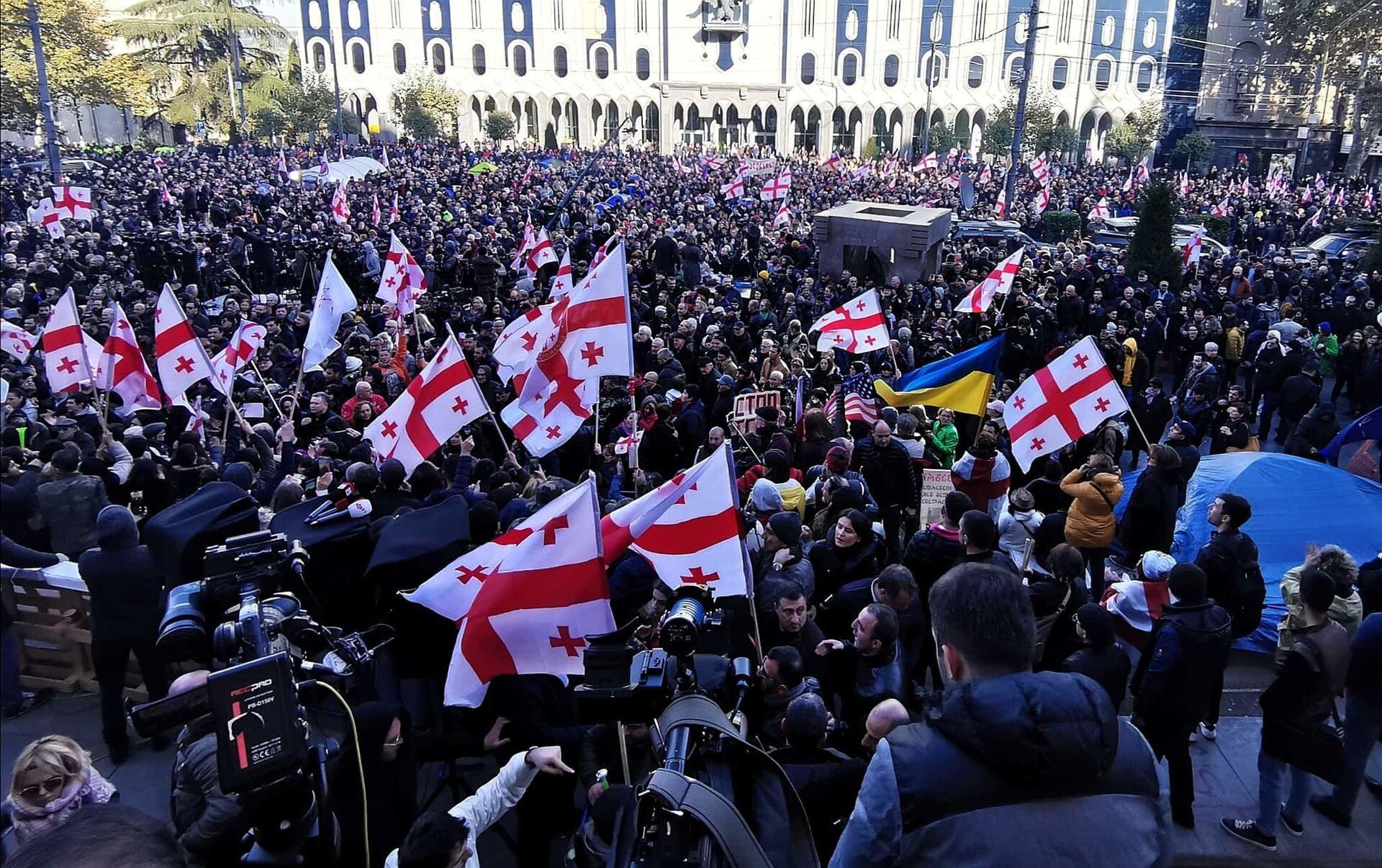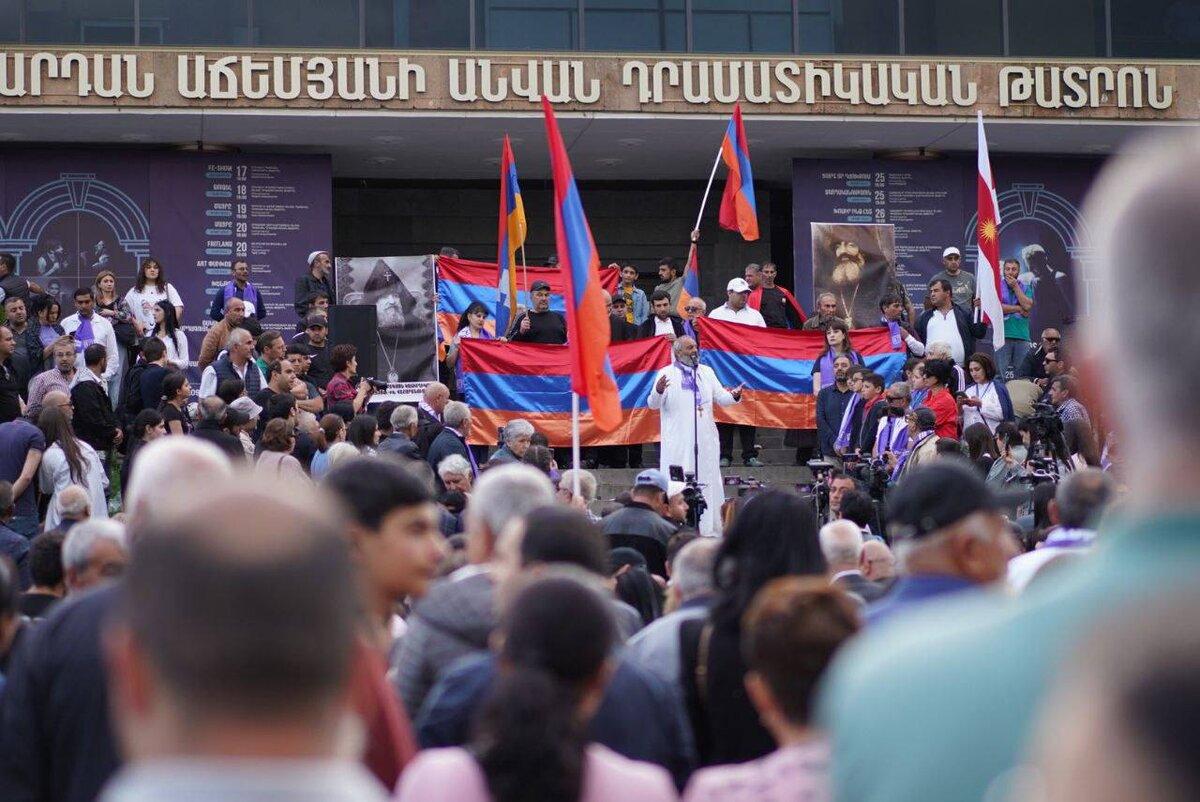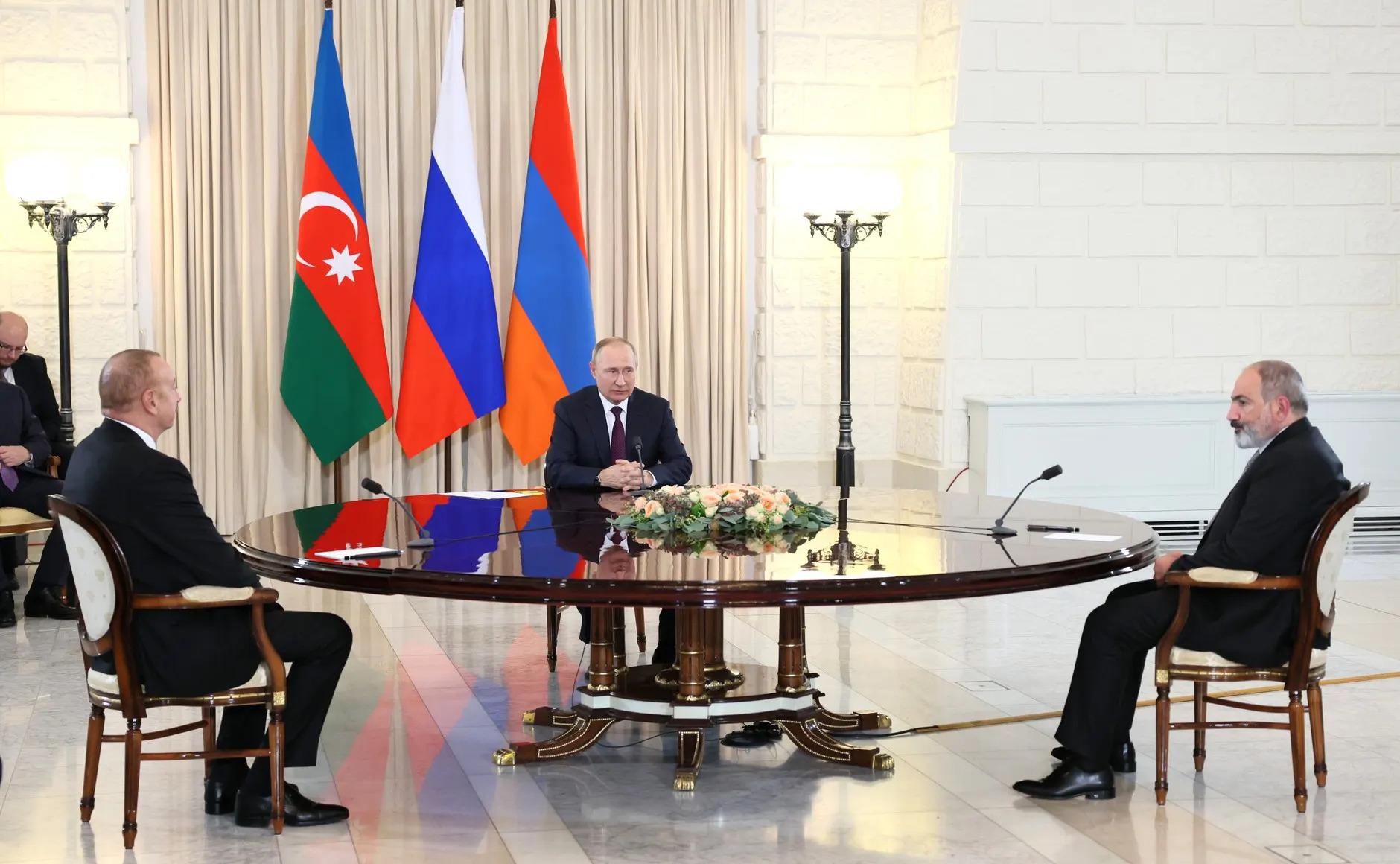NATO & EU role in exacerbating tensions in the South Caucasus Insight from new Russian defense minister
In a recent statement, Russia’s new civilian Defense Minister Andrei Belousov highlighted the increasing tension in the South Caucasus, attributing much of it to the confrontational stance adopted by NATO and the European Union towards Russia. His remarks, made during a meeting of the CSTO (Collective Security Treaty Organization) Defense Ministers Council in Almaty, underscore the geopolitical complexities that are influencing the dynamics in Georgia and the relations between Armenia and Azerbaijan.
Strategic interests & geopolitical maneuvering
Andrei Belousov pointed out that certain NATO member countries are seeking to strengthen their positions in the Caucasus. This strategic maneuvering is driven by a desire to gain access to the Caspian Sea resources and establish a direct link to Central Asia. The region’s rich energy reserves and its strategic location make it a focal point for geopolitical contests, particularly between Western powers and Russia.
Destabilization efforts & protests in Georgia
According to Andrei Belousov, the situation in Georgia is being destabilized by external forces, with protests being financed to fuel anti-Russian sentiments. This assertion points to a broader strategy by Western powers to weaken Russian influence in its neighboring regions by supporting opposition movements and fomenting unrest. The protests in Georgia, therefore, are not merely a domestic issue but a reflection of the larger geopolitical struggle between Russia and the West, the new Russian defense minister believes.

He blamed certain NATO countries for financing protests in Georgia to compel the government to take anti-Russian steps. ‘The situation is being destabilized and protests are being financed in Georgia, from which active anti-Russian actions are being sought,’ the defense minister said.
Mediation in Armenia-Azerbaijan relations
Andrei Belousov also criticized the unceremonious imposition of mediation services on Armenia and Azerbaijan by Western powers. He noted that the alliance aggressively seeks to strengthen its position in the zone of control of the Collective Security Treaty Organisation, in particular to gain access to the resources of the Caspian region and gain access to Central Asia.
Belousov believes the West is imposing its mediation services on Armenia and Azerbaijan. In his opinion, it is incorrect to try to limit the peace process only to Western negotiating platforms.

He went on to argue that proposals for signing a peace treaty on Western platforms, dictated by Western interests, undermine the sovereignty of the regional actors and exacerbate tensions. The criticism aligns with Russia's broader view that Western interventions often serve to further their geopolitical agendas rather than genuinely resolving conflicts.
Western influence in Armenia
One of Andrei Belousov’s primary concerns is the attempt by Washington and Brussels to involve Armenia in their sphere of influence under the pretext of strengthening security and defense. This move is seen as an effort to pull Armenia away from its traditional alliance with Russia and integrate it more closely with Western security structures. Belousov, along with the Russian government and political establishment, believes such shifts could significantly alter the balance of power in the region and diminish Russian influence.
Andrei Belousov stressed that NATO and the EU's confrontational approach towards Russia has increased tension in several CSTO collective security regions. The CSTO, a military alliance of several post-Soviet states, is a crucial component of Russia's strategy to maintain its influence in its near abroad. The increased Western engagement in these regions is perceived as a direct threat to this strategy.
Analytical perspective
Andrei Belousov's statements reflect Russia's deep-seated concerns about Western encroachment into its traditional sphere of influence. With its strategic importance and rich resources, the South Caucasus is a critical battleground in this geopolitical contest. Russia views NATO and the EU’s actions as part of a broader strategy to contain and weaken Russian power, not only in the South Caucasus but across its border regions.

The financing of protests in Georgia and the imposition of mediation in Armenia and Azerbaijan can be seen as tactics to destabilize the region and create conditions that are unfavorable to Russian interests. By fostering instability, Western powers may be aiming to create a pretext for increased intervention and influence.
Furthermore, the involvement of Armenia in Western security structures under the guise of enhancing security and defense capabilities represents a significant shift in regional alliances. This is a particularly concerning development for Russia, which has traditionally seen Armenia as a loyal ally within the CSTO.
Andrei Belousov's remarks also highlight a fundamental clash of visions for the region’s future. While Western powers advocate for increased integration of South Caucasian states into European and transatlantic structures, Russia promotes a vision of regional security managed by local actors under its influence. This clash is manifesting in the form of increased tensions and conflicts, which are unlikely to be resolved without addressing the underlying geopolitical competition.
The South Caucasus remains a highly contested region, with significant geopolitical stakes for both Russia and Western powers. The confrontational stance of NATO and the EU, as highlighted by Russian Defense Minister Andrei Belousov, is contributing to increased tensions and instability in the region.
The complex interplay of local and international dynamics underscores the challenges in achieving sustainable peace and stability in the South Caucasus.








